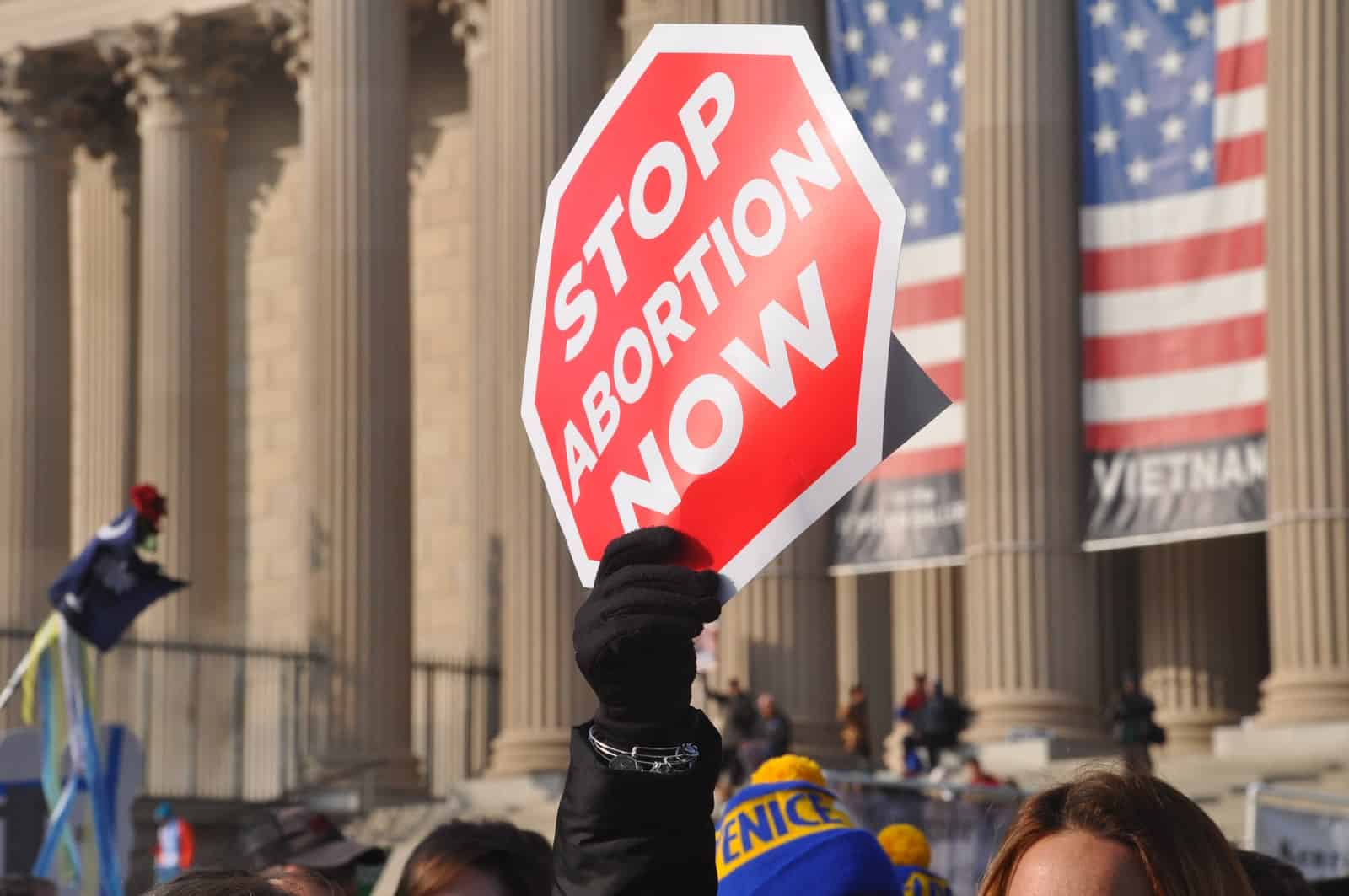R. C. Sproul once recalled a conversation in which he asked fellow Presbyterian minister Francis Schaeffer about the biggest threat faced by the church in America. Without hesitation, Schaeffer answered: “Statism.”
In the aftermath of the Supreme Court overturning Roe v. Wade—the 1973 opinion alleging that abortion is protected under the Constitution—Schaeffer’s concern is once again vindicated.
While many evangelicals celebrated the end of Roe as a positive development—but by no means the final development—in the battle to abolish abortion, many progressive evangelicals echoed the notion that the government must assume the role of caring for abortion-minded mothers. VeggieTales creator and podcast host Phil Vischer, for one, urged “policies that support women and children” driven by a “longing for a consistent commitment to human flourishing rooted in the Bible, not in the politics of left and right.” Baylor University professor Beth Allison Barr, for another, asked if those who support criminalizing abortion are also “ready to support paid family leave and subsidize child care.”
This argument is by no means new. Over the past several years, it has masqueraded under terms like “pro-all-life,” “holistically pro-life,” or “whole-life.” By mingling a clarion opposition to child sacrifice with various left-wing social causes—such as ending the death penalty, opposing so-called systemic racism, and expanding government welfare programs—the preborn babies left vulnerable to state-sanctioned murder are quickly forgotten.
Instead, statism advances as those claiming the name of Christ demand more federal government power to resolve every social ill, whether real or imagined.
Statism advances as those claiming the name of Christ demand more federal government power to resolve every social ill, whether real or imagined.
God has indeed delegated government authority over the sphere of civil justice—to be an “avenger who carries out God’s wrath on the wrongdoer” as “God’s servant” for those who do good (Romans 13:1–7). Christians are therefore directed to submit to the government (1 Peter 2:13–15) and to pray for the salvation of their magistrates (1 Timothy 2:1–2). However, Christians “must obey God rather than men” in the case of earthly authorities requiring something that God has forbidden, or forbidding something that God has required (Acts 5:29).
Statism, however, refers to a rogue government that encroaches upon other God-ordained spheres of authority—such as those overseen by the church and the family—often with zealous approval from the people. The history of the United States is largely characterized by a growth of centralized power at the expense of other institutions. God has commanded the church and its members to care for the poor (Galatians 6:10)—a role now occupied by welfare checks and food stamps, which produce dependence rather than providing opportunity. God has commanded the family to educate children (Deuteronomy 6:6–9)—a role now occupied by public schools, which forward depraved ideologies rather than the fear and admonition of the Lord.
By asking the federal bureaucracy to care for widows and orphans, the “holistically pro-life” are truly calling for an intensification of statism. This third-way approach tickles the ears of those who profess a biblical conviction on abortion while desiring to remain in the good graces of progressives who deify the state and bow the knee to Moloch.
There is a high degree of overlap between those in the “holistically pro-life” movement and those who submit themselves to other forms of “philosophy and empty deceit, according to human tradition” (Colossians 2:8). As the contagion of wokeness grips every American institution, many professing Christians find themselves caught up in the fray. They defend their newfound revolutionary convictions through eisegetical calls to “do justice” and “love kindness” (Micah 6:8). Yet the policies they support come from Jean-Jacques Rousseau and Karl Marx—not the “foundation of the apostles and prophets” (Ephesians 3:5).
Today, the “holistically pro-life” continue to take their marching orders from the world and coat them with a thin veneer of Christianity rather than submitting to the pure wisdom of God’s sufficient Word. “Claiming to be wise, they became fools” (Romans 1:22).
Nearly one century ago, Westminster Theological Seminary founder J. Gresham Machen contended with professing Christians who stressed social activism over the proclamation of Christ’s death and resurrection. In his seminal book Christianity and Liberalism, Machen wrote: “Here is found the most fundamental difference between liberalism and Christianity—liberalism is altogether in the imperative mood, while Christianity begins with a triumphant indicative; liberalism appeals to man’s will, while Christianity announces, first, a gracious act of God.”
Those given over to wokeness have nothing beyond commandments to offer. Their graceless religion is slavery to the approval of an unrelenting progressivism. Faith and love are replaced by struggle sessions and penance to a merciless priesthood. Yet those who hold to biblical Christianity proclaim the salvation freely offered by Jesus—a living hope which causes believers to “renounce ungodliness and worldly passions, and to live self-controlled, upright, and godly lives in the present age” (Titus 2:12).
However, true Christianity by no means lacks imperatives. God calls His people to “rescue those who are being taken away to death” and “hold back those who are stumbling to the slaughter” (Proverbs 24:11).
God’s Word lacks no clarity in affirming that preborn babies are His image-bearers “fearfully and wonderfully made,” even from their mothers’ wombs (Psalm 139:13–14). Civil government is charged with protecting every image-bearer of God—without partiality due to size, level of development, or degree of dependence.
We must therefore continue to exhort our magistrates to establish equal protection under the law for preborn babies—a righteous goal that is far from complete.
For one, the trigger laws enacted by many conservative states after the Supreme Court overturned Roe do not actually protect preborn babies’ unalienable right to life. Mississippi, Idaho, North Dakota, Utah, and Wyoming still protect child sacrifice in situations like rape, incest, or birth defects. Some states—such as Louisiana—impose stricter financial penalties for animal cruelty than they do for abortion.
For another, even as the closure of surgical abortion centers makes national headlines—a reality that Christians can indeed celebrate—we would be foolish to forget that abortion is increasingly self-managed through pills one can order through the mail. Though abortion via forcep, suction, chemical injection, or saline solution may no longer be accessible in some states, it is still quite possible for mothers and fathers to dispose of their offspring in the privacy of their own homes.
In a post-Roe America, Christians must not seek to fan the flames of statism. We must instead exhort every authority ordained by God to work faithfully in their respective spheres. The state must guarantee justice for the fatherless; the church must confront the sin of abortion with the gospel and serve the needy; the family must raise their children in nurturing households built upon the firm foundation of Jesus Christ.
For this we toil and labor, until our Lord returns—so help us God.




